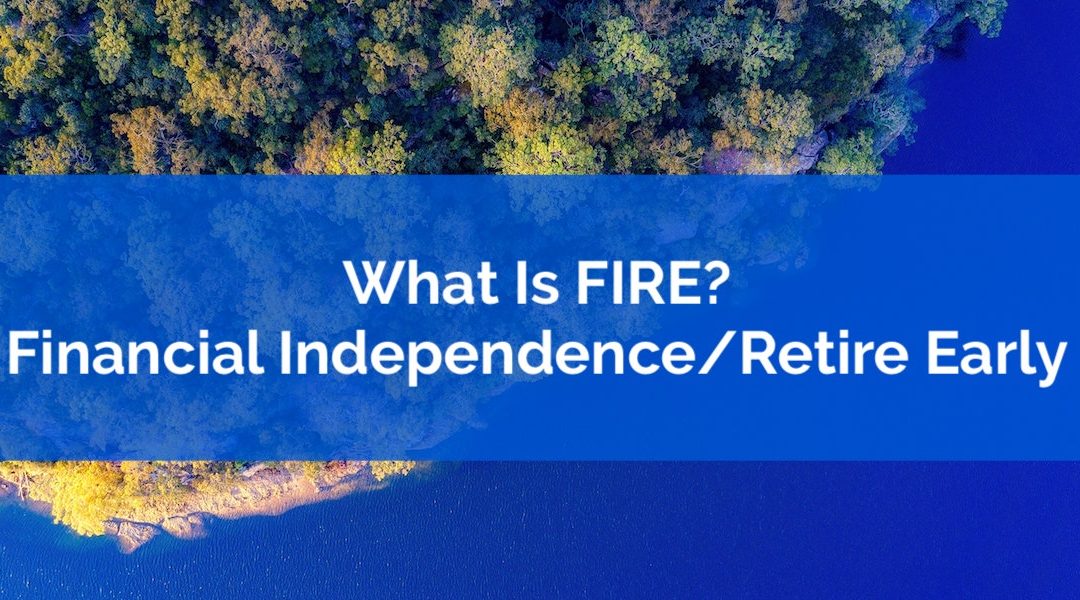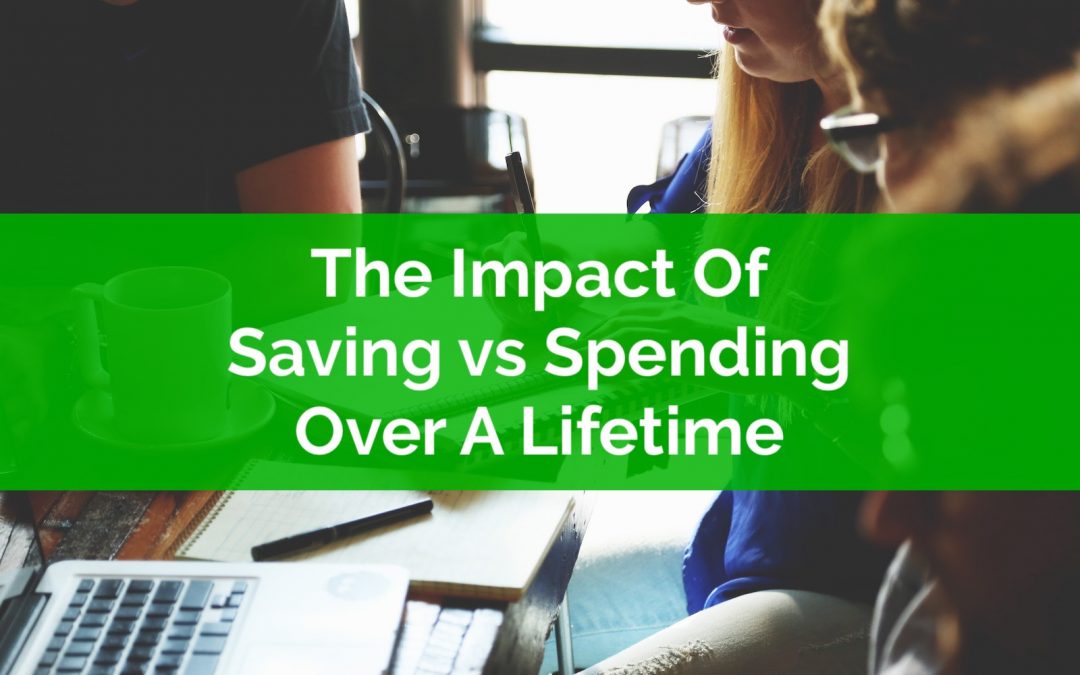
by Owen | Mar 19, 2023 | Behavioral Finance, Budgeting, Emergency Fund
Some surprises are great… but one surprise no one likes is an unexpected expense. An unexpected expense can wreak havoc on your personal finances. Unfortunately, unexpected expenses are extremely common, especially for those who own homes and vehicles.
For those of us who own large depreciating assets like vehicles, homes, boats, RVs etc., planning for unexpected expenses is an important financial habit. We need to prepare for future repairs and upgrades, even if they’re not entirely predictable.
At PlanEasy we call these types of expenses “infrequent expenses”. Unlike your regular monthly bills, infrequent expenses are not regular and are much less predictable. It’s hard to predict both the size and timing of infrequent expenses but they are still expenses that we need to prepare for.
If you own a depreciating asset like a home or vehicle then you can be guaranteed to have some large expenses in the future. To prepare for these expenses you need to set aside a certain amount of money each month, otherwise you’ll feel a nasty cash flow pinch in the future, or in a worst-case scenario, end up in debt. For those with a large home and 1-2 vehicles, setting aside $500 to $1,000+ per month is a pretty common goal. How much are you setting aside for infrequent expenses? Is it enough?
To manage these infrequent expenses, we can use a “fund” or “funds”. A fund is a small pot of money that you contribute to regularly. It’s set aside in a high-interest savings account and waits there ready to help when these types of expenses occur. We don’t like to think of this as savings, and its not an emergency fund, this is future spending that just hasn’t quite happened yet.

by Owen | Feb 13, 2023 | Budgeting, Financial Goals, Financial Planning, Income, Investment Planning, Retirement Planning, Saving Money, Tax Planning
In this blog post we’re going to look at an average retirement plan with $1,700,000 in financial assets. Why $1,700,000? Because that’s what a recent bank survey suggested that the average Canadian feels they need to retire.
Now, banks are in the business of selling financial products, so they may be somewhat biased when it comes to how much you should be saving for retirement. They’re probably happy for you save and invest more for retirement because it means more investment fees for them. But let’s give them the benefit of the doubt and let’s see if $1,700,000 is really the right retirement goal for the average Canadian household.
Having done many, many, advice-only retirement plans I suspect that this number is grossly overstated, and a much smaller amount is likely sufficient to have a comfortable retirement for the average household.
To test if this is true, we’re going to build an “average retirement plan” with $1,700,000 in financial assets.
Of course, no retirement plan is ever average. Some people have more CPP, some less. Some people have defined benefit pensions, others do not. Some people want to spend more in retirement while others are content with spending less. There is no such thing as an “average retirement plan” but we’re going to make some broad assumptions to test whether or not $1,700,000 is a reasonable goal for retirement assets or if it’s grossly overstated.

by Owen | Jan 30, 2023 | Behavioral Finance, Budgeting, Financial Goals, Financial Planning, Income, Investment Planning, Retirement Planning, Saving Money
You may have noticed a new term starting to creep into the mainstream financial media, that term is FIRE, and you might be wondering, “What the heck is FIRE? And how is it related to personal finances?”.
FIRE is an acronym that stands for Financial Independence/Retire Early. The basic idea is that if you pursue FIRE you can eventually stop working for money. You can be financially independent. You can do anything, retire early, keep working, volunteer, basically you can have more freedom.
The idea is that with enough savings/investments you’ll eventually reach the point where you can live off your investment income indefinitely. Once you reach this point you’re considered financially independent, you no longer NEED to work for an income, and can retire to a life of leisure (although you may choose to continue to work, change roles/professions, start a business, or volunteer).
While the concept of early retirement sounds amazing, it does take quite a bit of focus and determination to get there. To reach FIRE it requires a high savings rate, very high.
The typical financial advice given to the public is to save and investment approximately 20% of your net income (part of the simple 50/30/20 budget).
But to reach financial independence retire early you need to save more, much more. To reach FIRE you need to have a savings rate somewhere in the 30%-70%+ range. The higher your savings rate the faster you can stop working for money.
Because it’s easier to reach financial independence/retire early with a high savings rate, the path to FIRE is made easier with an above average income. With an above average income, basic expenses are easily covered, and it becomes more about managing lifestyle inflation. People who pursue FIRE try to limit their lifestyle inflation to maintain a high savings rate.
FIRE is also possible with a below average income, but requires a lot of creativity to reduce basic expenses. This may include house hacking, avoiding car ownership, and more extreme lifestyles. To reach financial independence/retire early with a low-income you need to live an alternative lifestyle.
Reaching FIRE is one of those extreme personal finance goals, it’s a goal that isn’t for everyone.
Even though the end goal sounds appealing, it requires a lot of hard work and dedication along the way. Reaching financial independence retire early means living way below your means for the rest of your life. It’s a lifestyle more than it is an end goal. It’s a lifestyle with a lot of freedom, but it’s also a lifestyle that requires a lot of control.
If you’re able to control your spending, and save a large % of your income, then reaching financial independence might only be a few years away.
To find out how far away you are from financial independence you can make a copy of our FIRE calculator and quickly calculate how many years it will take to reach FIRE in your situation. It will help you estimate how many years from FIRE you are based on your net-income, current expenses, and existing savings.
We’ve used our FIRE calculator to create four examples of how to reach FIRE.

by Owen | Jan 22, 2023 | Budgeting, Financial Goals, Financial Planning, Saving Money
Spending is one of the most important factors in someone’s personal finances. Even a small amount of extra spending, over a long period of time, can have a very large impact on someone’s financial situation.
In this post we’re going to explore how large this impact can be. To do that we’re going to follow two people through their financial lives, from starting university all the way through to late retirement. Year-by-year we’re going to see how spending impacts their finances.
Spending is an interesting topic. It’s such an important factor in everyone’s finances and yet everyone spends money differently. We all value things differently, which means we choose to spend extra money on different things. This makes it very hard to figure out what “the right amount of spending” actually is. Spending is very subjective.
What makes it even more complicated is that we all have learned habits and behaviors that impact our spending. These habits are learned over time and can be very difficult to break.
Plus, we’re all impacted by our past spending decisions (ie locking into an expensive car lease, buying ‘too much’ house, putting a vacation on credit). Even if we have the best intentions going forward, these past spending decisions can be an anchor.
Spending also has a large impact. A small amount of extra spending can have a large impact over time. Compounding means that just a little bit of extra spending, over a long period of time, has an enormous impact on our financial lives.
As an example, spending an extra $10 per day seems small. It’s pretty easy to spend $10 per day. This is a coffee every day plus a purchased lunch every other day. This is a nice meal at a restaurant once per week. It’s an extra piece of clothing every week or two. Or it could be a slightly larger home costing an extra $100,000, which comes with extra interest expenses, extra property tax, and extra heating and maintenance costs. It could be driving to work instead of walking, biking or using public transit. Or it could be a combination of these things.
Even though an extra $10/day in spending seems small and is easy to do if you’re not paying attention, over time it has a huge impact on a person’s financial life.
This post will follow two people through their financial lives, with one person spending $10/day more than the other. It may seem small, after all it’s only $10, but that adds up $3,650 per year, or $36,500 every 10-years, and that doesn’t even account for compounding.
By following two people through their financial lives we’ll see how spending an extra $10/day causes their financial lives to diverge dramatically.
For our example we’ll use two friends from high school, Katie and Kyle, they’re both 18 years old and about to enter university. They’re both entering an engineering program and have very little saved for university. They’ll use student loans plus summer jobs earning $12,000 per summer to help pay for their education.
Most important however is that Kyle is the more spendthrift friend out of the two, spending an extra $10/day than Katie. This habit of spending vs saving will continue throughout their lives with Kyle always spending $10 more per day and Katie saving that $10.
Let’s follow Kyle and Katie through a few periods of their life. We’ll see how a seemingly insignificant $10/day can cause their financial lives to diverge dramatically over time.

by Owen | Jan 16, 2023 | Behavioral Finance, Budgeting, Financial Goals, Financial Planning, Get Out Of Debt, Income
Goals are a fantastic way to motivate yourself. Having a big, ambitious goal will help you prioritize other things in your life. It gives you something to work toward. Something that you care deeply about. It helps you balance what you need today with what you want to achieve in the future.
Financial goals have made a huge difference in my life. Setting powerful financial goals has helped me focus on the things that matter to me and ignore the things that don’t. They’ve helped me prioritize my spending to better align with my short and long-term goals.
Because of these financial goals, I’ve cut $1,000’s per year in wasteful spending. Spending that really didn’t provide much value to me. Spending that was mostly driven out of habit. Spending that I’d gladly cut in favor of my long-term goals.
Once you have a financial goal then you have to track it. And this can be a challenge on its own.
One thing that helps me reach my financial goals (or any goal for that matter) is to track my progress visually.
Maybe I’m a visual person but I find it helps me to “see” where I’ve come from and where I’m going. It’s super motivating to see that I’m hitting my monthly goals and that I’m on track to hit my long-term goal.
There are a few different ways to visualize your goals. I’m going to share my three favorite visualization techniques with you.

by Owen | Jan 9, 2023 | Behavioral Finance, Budgeting, Financial Planning, Get Out Of Debt, Retirement Planning, Saving Money
When it comes to personal finance there are many different milestones and each one is its own individual achievement. Personal finance is full of achievements you need to ‘unlock’ to be successful. The more achievements you unlock, the more successful you’ll be at building wealth.
To ‘win’ the money game you need to hit a certain number of milestones along the way. Some achievements are required before you can move forward in the game. Others enable you to accelerate your wealth even faster. And then there are some achievements that are just interesting check points along the way.
Here are 30 personal finance achievements you need to unlock!
How many have you unlocked already?






